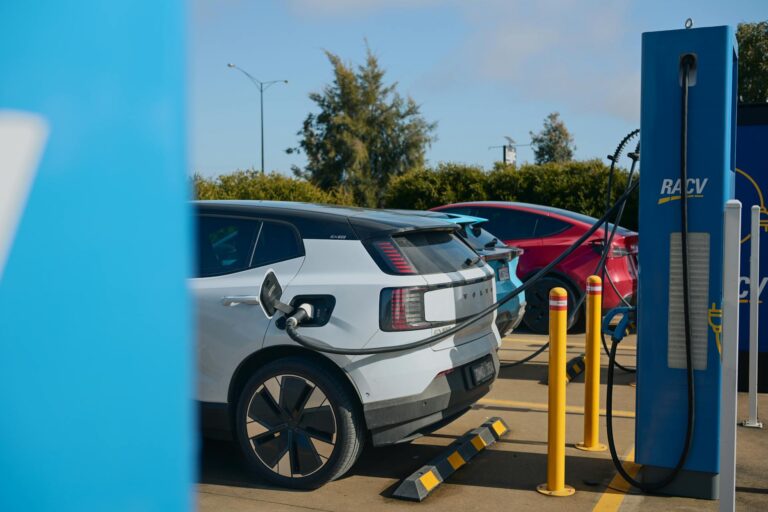Technology Horizons 2030 and Beyond
My Predictions as a Seasoned Technologist
USTOAI curated this exceptional story written by Dr Mehmet Yildiz as our guest blogger.
As we approach the midpoint of the 21st century, the boundaries between biology, computation, and the built environment are dissolving.
What once belonged to speculative fiction is now entering early prototypes, clinical trials, and pre-commercial deployment. From regenerative medicine to quantum-powered smart cities, these developments will redefine how we live, work, and shape our future.
The question is not whether these shifts will occur, but how thoughtfully we will guide them.
Regenerative Medicine and Cognitive Longevity
Stem cell research has moved from theoretical promise to practical potential, offering the ability to restore or replace tissues damaged by disease or age.
Advances in neurodegenerative research are focusing on prevention as much as treatment, with Alzheimer’s disease, Parkinson’s disease, and other cognitive disorders attracting unprecedented investment.
The emerging vision is a world where organ replacement and neural implants, such as Neuralink and the Braingate initiative, can restore lost motor function and monitor brain health in real time.
These innovations promise significant benefits for cognitive longevity, but also bring complex ethical questions about enhancement, equity, and human identity.
Bioprinting, 3D Fabrication, and Nanotechnology
Three-dimensional printing has matured from a prototyping novelty into a manufacturing platform. When combined with nanotechnology, fabrication can reach molecular-level precision.
Bioprinting is now capable of producing human tissues such as skin, bone, and blood vessels. Bio-integrated prosthetics are bridging the human nervous system with synthetic limbs.
In the future, nano-engineered protective suits could regenerate tissue, enhance performance, and shield users from environmental hazards.
Advanced Biotechnology and Genetic Engineering
Biotechnology combined with information technology is transforming agriculture, pharmaceuticals, and materials science.
Gene-editing tools such as CRISPR have made targeted DNA modification faster and more accurate, enabling the potential cure of inherited and chronic diseases.
The debate over enhancement through genetic engineering versus mechanical augmentation will intensify.
Genetic modifications may gain broader societal acceptance, while bionic solutions will continue to expand human capabilities.
Internet of Everything and Internet of Bodies
The Internet of Things is evolving into the Internet of Everything, embedding connectivity into infrastructure, vehicles, and wearable devices.
The Internet of Bodies (IoB) integrates biosensors, implants, and wearable technologies into connected health systems.
Benefits such as continuous health monitoring and early disease detection are balanced by risks in data privacy, emotional profiling, and algorithmic decision-making. Ethical frameworks and robust regulations will be essential to ensure safety and public trust.
Intelligent Automation in Home, Industry, and Commerce
Automation is evolving from rule-based systems to artificial intelligence robotics capable of adaptive decision-making.
Industries from agriculture to logistics are using autonomous systems to reduce costs and increase efficiency.
AI-powered robots are gaining mobility, dexterity, and environmental awareness, enabling full automation in home, industrial, and commercial environments.
Autonomous Mobility and Transportation
Self-driving vehicles have the potential to reduce accidents, ease traffic congestion, and create new models of shared transportation.
Progress in autonomous navigation, sensor technology, and regulatory adaptation will accelerate adoption.
By 2030, autonomous freight transport and public mobility systems are expected to operate in major metropolitan areas.
AI-Activated Communication and Assistance
Artificial intelligence is enhancing mobility technologies, from predictive GPS routing to real-time traffic optimization.
Conversational AI, chatbots, and voice assistants are evolving from scripted responses to context-aware interactions.
Emerging technologies include biometric-responsive advertising and task automation, which will raise important questions about cognitive privacy and mental autonomy.
Digital Currencies, Blockchain Wallets, and Tokenized Economies
Blockchain has moved from cryptocurrency speculation to a foundational infrastructure for finance.
Central Bank Digital Currencies (CBDCs) and decentralized tokens will coexist, forming hybrid monetary ecosystems.
Non-Fungible Tokens (NFTs) will expand beyond art into digital asset authentication for contracts, intellectual property, and ownership rights in virtual economies.
Mixed Reality and Immersive Digital Environments
Virtual reality, augmented reality, and mixed reality are merging sensory inputs such as sight, sound, and scent into shared digital spaces.
Gaming is the largest economic driver, but applications in education, remote collaboration, and simulation training are expanding rapidly.
Digital intimacy industries will challenge legal frameworks, redefine relationships, and test cultural boundaries.
Quantum-Driven Smart Cities and Self-Healing Infrastructure
Smart cities will rely on self-repairing materials, predictive infrastructure maintenance, and AI-optimized energy systems.
Quantum computing, although still early in development, will eventually enable real-time optimization at scales beyond classical computing.
Major technology companies and national research programs are competing to create quantum machines capable of managing city-scale systems and complex scientific models.
The Broader Perspective
Technology is neither inherently liberating nor inherently limiting. Regenerative medicine can extend life but may also deepen inequality. Autonomous systems can reduce accidents but may reduce human oversight.
The coming decade will require both curiosity for innovation and commitment to ethics, safety, and inclusivity. As William Blake wrote, “What is now proved was once only imagined.”
By 2030 and beyond, the challenge will be ensuring that what we imagine serves humanity as a whole.
Thank you for reading my perspectives.
About the Author
Dr Mehmet Yildiz is a seasoned technologist, cognitive scientist, educator, and futurist with 45 years of consulting experience working in multi-billion projects as a distinguished enterprise architect. He is an author of 50+ books, scholarly papers, and patents. He is the owner and chief editor of ILLUMINATION publications on Medium, Substack, and Patreon managed through his global network Digitalmehmet Content Ecosystem.






